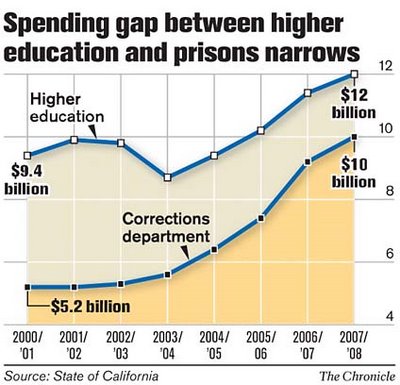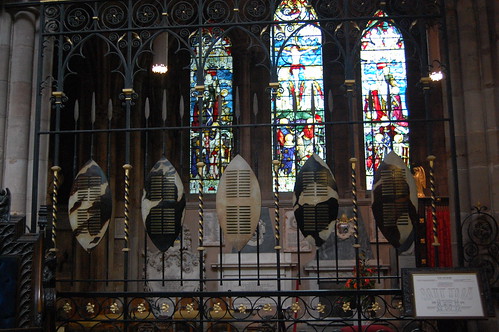by Henry Farrell on May 29, 2007
“Eugene Volokh”:http://volokh.com/archives/archive_2007_05_27-2007_06_02.shtml#1180464590 gives the nod to Glenn Reynolds for a story about how Muslims are likely to respond in a “worrying” way if Ayaan Hirsi Ali speaks in Australia.
A tip: When you warn that your religious community will respond to critical speech in a “worrying” way, it is that response — and your use of that response as an attempt to deter such speech — that has the most potential to incite hostility. Oddly enough, citizens of a free country are often hostile (sometimes even to the point of hatred) to ideologies that demand suppression of critical religious views. And if your view is that Islam is a religion of peace, and that the overwhelming majority of Muslims don’t support religious violence, then condemn the (by hypothesis) small and unrepresentative segment of the community that is likely to act violently rather than using the “reaction from the community” as a threat in your political advocacy.
“Glenn Reynolds himself”:http://www.instapundit.com/archives/015626.php a couple of years ago on the American press and Iraq:
Freedom of the press, as it exists today (and didn’t exist, really, until the 1960s) is unlikely to survive if a majority — or even a large and angry minority — of Americans comes to conclude that the press is untrustworthy and unpatriotic. How far are we from that point?
See also his more recent “claim”:http://www.washingtonmonthly.com/archives/individual/2006_03/008351.php that “The press had better hope we win this war, because if we don’t, a lot of people will blame the media.” It seems to me that both statements invoke the same kind of implied threat as Eugene’s Muslim spokesperson: if you don’t say what I like, then other elements of the community are going to punish you for it (I’ll stand on the sidelines and sadly deplore what they do, but don’t try to tell me that you weren’t asking for it). I’d very much like to believe Eugene’s claim that the citizens of a free society are likely to be hostile to those who want to suppress critical views. But I imagine that this claim would be rather more persuasive if Eugene weren’t himself drawing on someone who has made implied threats about what will happen to the journalists rooting for America’s defeat unless they get on-side with the righteous American patriots.
by Chris Bertram on May 29, 2007
On the whole, ethnic stuff in English churches tends to consist of displays celebrating multiculturalism and interfaith understanding etc. So it was with some surprise that, when visiting Lichfield’s magnificent medieval cathedral I stumbled on this war memorial in the south transept. This in-your-face bit of Africa dates from just after the “Anglo-Zulu War of 1879”:http://en.wikipedia.org/wiki/Anglo-Zulu_War (think Rorke’s Drift, think Michael Caine) and is just a teeny bit incongruous amidst the gothic widows and vaulted ceilings.
The whole Cathedral is magnificent by the way — there are other photos in my Flickr stream — and this isn’t the only cultural surprise. A memorial to Erasmus Darwin has the words:
“His speculations were directed towards problems which were afterwards more successfully solved by his Grandson, Charles Darwin, an inheritor of many of his characteristics.”
by Henry Farrell on May 29, 2007
This post has perhaps the single most unriveting title that a Crooked Timber post has _ever_ had (although there are arguably some other “close contenders”:http://maxspeak.org/mt/archives/002361.html). But it’s motivated by some real annoyance. I’ve been dealing with a major project which has moved from one publishing venue to another, and am now checking to make sure that all the authors have switched over to the new bibliographical format, with brackets in the right places, journal volume number but not issue number, and all of the rest of that nonsense Which made me think about the considerable transaction costs that this involves for authors of academic articles and books. Most publications and presses in the social sciences have their unique house style, which one has to conform to in order to get something published.
You can maybe tell a functionalist story about why there are some differences in bibliographical styles _between_ disciplines – lawyers likely do have good reason to have those long confusing footnotes bristling with references. Within disciplines however, the continuing differences between journals are perhaps in part the result of path dependence (which in this case is little more than a fancy term for laziness on the part of the publishers; they’ve always done it this way and see no reason to change), in part the result of prestigious journals trying to reduce the flow of submissions by making prospective authors pre-commit some effort to sprucing up the bibliography before they submit a piece, so that they are less likely to submit a bad article on the off-chance. But surely this can’t explain why less prestigious journals too have their own house styles – one would think that those journals towards the lower end of the prestige rankings have an incentive to make it as easy as possible for authors to submit pieces. So I suspect that there is something else going on which isn’t strictly rational – a perception on the part of editors/publishers that to be a ‘real’ journal, one has to have one’s own particular hoops to make authors jump through. But then I’m writing as someone who has never edited an academic journal, nor seen any of the internal politics around these decisions – if anyone out there has more facts, or indeed more fact-free speculations along the lines presented here, comment away.
by Kieran Healy on May 29, 2007
Last weekend I read Prophet of Innovation, Thomas McGraw’s biography of Joseph Schumpeter. Maybe more on that later: I need to write something about it before I forget the content. Somewhere in there McGraw quotes Schumpeter’s line that “the budget is the skeleton of the state, stripped of all misleading ideologies.” With that in mind, here’s a kind of X-ray of California’s state budget, via “Chris Uggen”:http://chrisuggen.blogspot.com/2007/05/san-francisco-chronicle-offers-well.html.

This is from a “SF Chronicle”:http://www.sfgate.com/cgi-bin/article.cgi?f=/c/a/2007/05/21/MNG4KPUKV51.DTL article on these trends, which look set to continue.
Over the past few years, sociologists “Bruce Western”:http://www.princeton.edu/~western and “Becky Pettit”:http://faculty.washington.edu/~bpettit/ have shown that incarceration has become a standard feature of the life-course for certain segments of society, especially young, unskilled black men. A “paper by Pettit and Western”:http://www.princeton.edu/~western/ASRv69n2p.pdf provides some estimates, notably the astonishing finding that in the cohort born between 1965 and 1969, thirty percent of black men without a college education — and _sixty_ percent of black men without a high school degree — had been incarcerated by 1999. Recent cohorts of black men “are more likely to have prison records (22.4 percent) than military records (17.4 percent) or bachelor’s degrees (12.5 percent).” Western develops the argument at greater length in a recent book, Punishment And Inequality in America, which you should really go and buy. As these shifts show up in the social patterning of individual biographies, so too will they be reflected in the Schumpeterian skeleton of the state budget.

